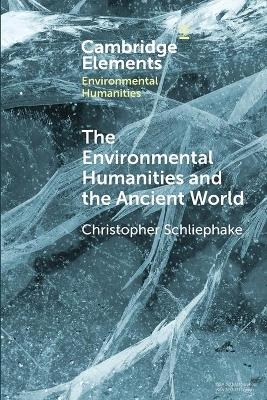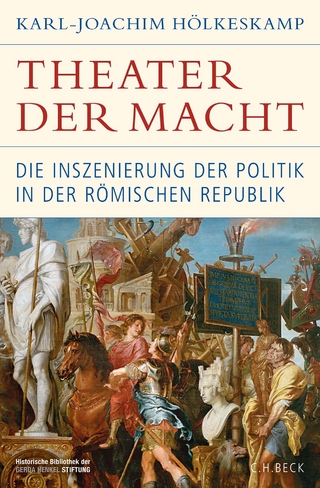
The Environmental Humanities and the Ancient World
Questions and Perspectives
Seiten
2020
Cambridge University Press (Verlag)
978-1-108-74904-6 (ISBN)
Cambridge University Press (Verlag)
978-1-108-74904-6 (ISBN)
This Element aims to show why the ancient tradition still matters in the Anthropocene. Revisiting ancient materials alongside central concepts of contemporary environmental theory, Schliephake offers new perspectives and argues that classical ecological knowledge is a powerful resource for creating alternative world views.
What can a study of antiquity contribute to the interdisciplinary paradigm of the environmental humanities? And how does this recent paradigm influence the way we perceive human-'nature' interactions in pre-modernity? By asking these and a number of related questions, this Element aims to show why the ancient tradition still matters in the Anthropocene. Offering new perspectives to think about what directions the ecological turn could take in classical studies, it revisits old material, including ancient Greek religion and mythology, with central concepts of contemporary environmental theory. It also critically engages with forms of classical reception in current debates, arguing that ancient ecological knowledge is a powerful resource for creating alternative world views.
What can a study of antiquity contribute to the interdisciplinary paradigm of the environmental humanities? And how does this recent paradigm influence the way we perceive human-'nature' interactions in pre-modernity? By asking these and a number of related questions, this Element aims to show why the ancient tradition still matters in the Anthropocene. Offering new perspectives to think about what directions the ecological turn could take in classical studies, it revisits old material, including ancient Greek religion and mythology, with central concepts of contemporary environmental theory. It also critically engages with forms of classical reception in current debates, arguing that ancient ecological knowledge is a powerful resource for creating alternative world views.
1. Introduction; 2. The ecological turn in classical studies; 3. Athena and the olive: environmental aspects of Ancient Greek religion revisited; 4. Coda: ancient thought and contemporary environmental theory; 5. Summary.
| Erscheinungsdatum | 13.07.2020 |
|---|---|
| Reihe/Serie | Elements in Environmental Humanities |
| Zusatzinfo | Worked examples or Exercises |
| Verlagsort | Cambridge |
| Sprache | englisch |
| Maße | 153 x 230 mm |
| Gewicht | 300 g |
| Themenwelt | Geschichte ► Allgemeine Geschichte ► Altertum / Antike |
| Geisteswissenschaften ► Sprach- / Literaturwissenschaft ► Anglistik / Amerikanistik | |
| Geisteswissenschaften ► Sprach- / Literaturwissenschaft ► Literaturwissenschaft | |
| Naturwissenschaften ► Biologie ► Ökologie / Naturschutz | |
| Sozialwissenschaften | |
| ISBN-10 | 1-108-74904-6 / 1108749046 |
| ISBN-13 | 978-1-108-74904-6 / 9781108749046 |
| Zustand | Neuware |
| Haben Sie eine Frage zum Produkt? |
Mehr entdecken
aus dem Bereich
aus dem Bereich
die Inszenierung der Politik in der römischen Republik
Buch | Hardcover (2023)
C.H.Beck (Verlag)
CHF 67,20
Buch | Hardcover (2024)
Klett-Cotta (Verlag)
CHF 69,95


